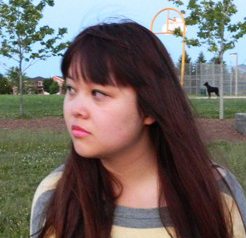Professional athletes still encounter homophobia in sport. But university-level athletes have seen a positive shift in sport culture over the last 10 years – though the fight is far from over, says Bruce Kidd, a professor in the Faculty of Kinesiology and Physical Education and Warden of Hart House.
“At U of T, the expectation is that if you wear the blue and white uniform, you have to be supportive of your teammates,” he says. “With respect to LGBT, most have accepted that.” Kidd is optimistic for the future as well, with student driven grassroots initiatives springing up and with the university beginning to implement diversity training for all athletes and staff.
Taylor Bond competed on the Varsity Blues men’s swim team for four years (he was team captain from 2011 to 2012). He recalls his first trip to campus, when head coach Byron MacDonald and a few team members made him confident U of T would be an inclusive space. A year later, he decided to come out. “You always have doubts about it, especially with an all-male team, but by then I already felt very comfortable with my teammates,” says Bond. “And the response has been unbelievably positive.”
Last February, during U of T’s first-ever Athlete Ally week, athletes spoke out against homophobia and wore a sticker to show their support for an LGBT-positive space in sports. The awareness week takes place again early in the new year. Last year, Blues athletes also showed “You Can Play” videos at their annual banquet. “The idea is that athletes should be judged on talent and work ethic, not sexual orientation,” says Bond.
Barb Besharat (BPHE 2005) recently facilitated a campus discussion on gender and sports. “U of T has always been well ahead of the curve with its diversity policies and practices for LGBT athletes,” she says. “But they’ve really taken off in the last few years. They have staff members dedicated to equity initiatives in sport – that’s different from when I was a student, and different from many other schools today.”
U of T’s St. George and Scarborough campuses have made a commitment to integrate Pride House elements into the 2015 Pan Am and Parapan Am Games. Michelle Brownrigg, director of physical activity and equity in the Faculty of Kinesiology and Physical Education, is developing student engagement opportunities that could help make the next major international games a positive experience for all athletes. “We want to address everything from homophobic language in the locker room to slurs on the field,” she says. “Our goal is to foster a positive space in sport culture.”
Now focusing on his last year of studies, Bond still wants to get involved with both on- and off-campus initiatives. With the Sochi Olympic Games on the horizon, LGBT support is more needed than ever, he says. “Events like Athlete Ally have gay and straight athletes working together to send out the same message,” he says. “And that message is, ‘Hey, when I’m on the hockey rink with you or in the swimming pool with you, you are who you are – no matter what your sexual orientation is.’”






